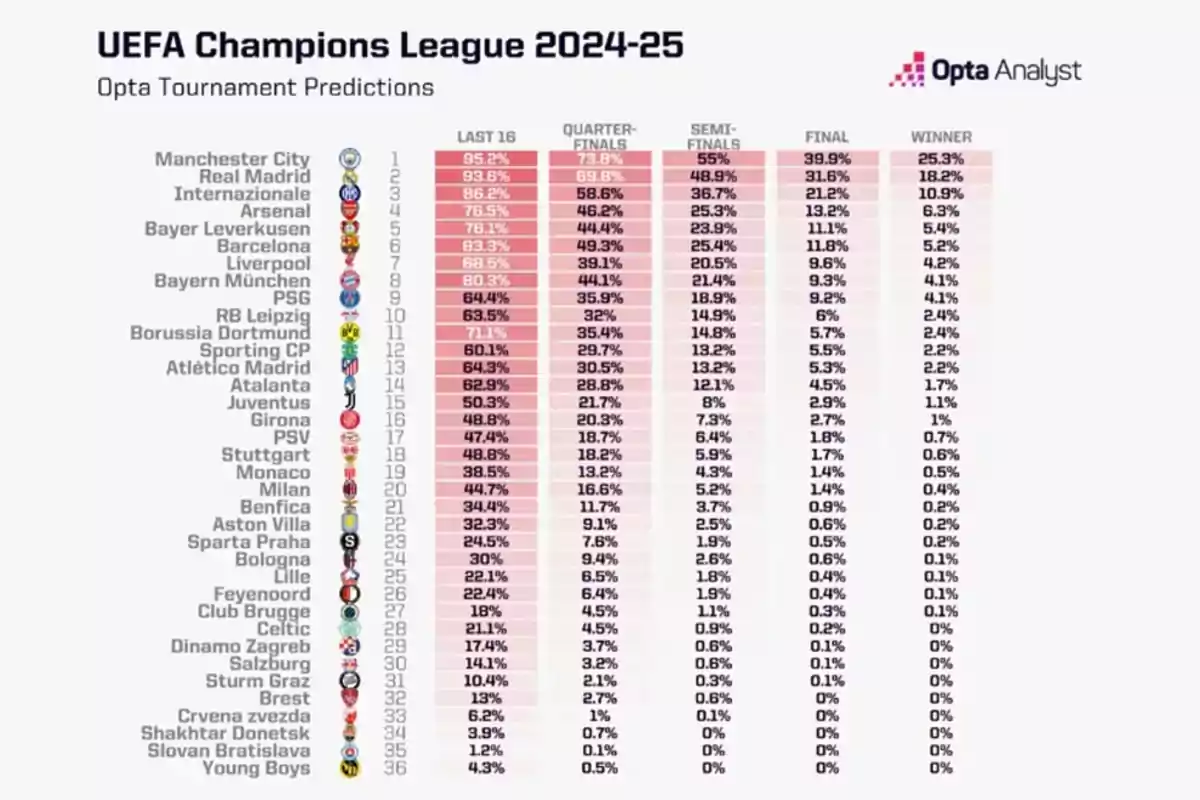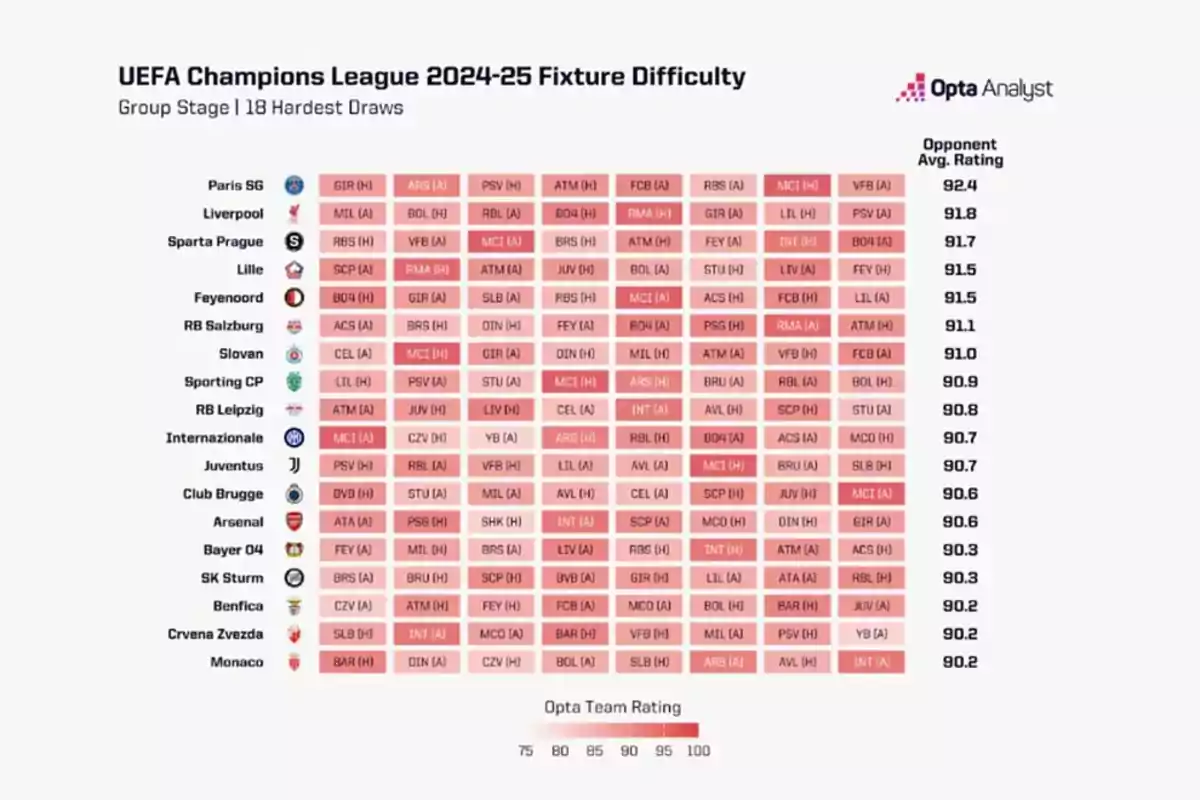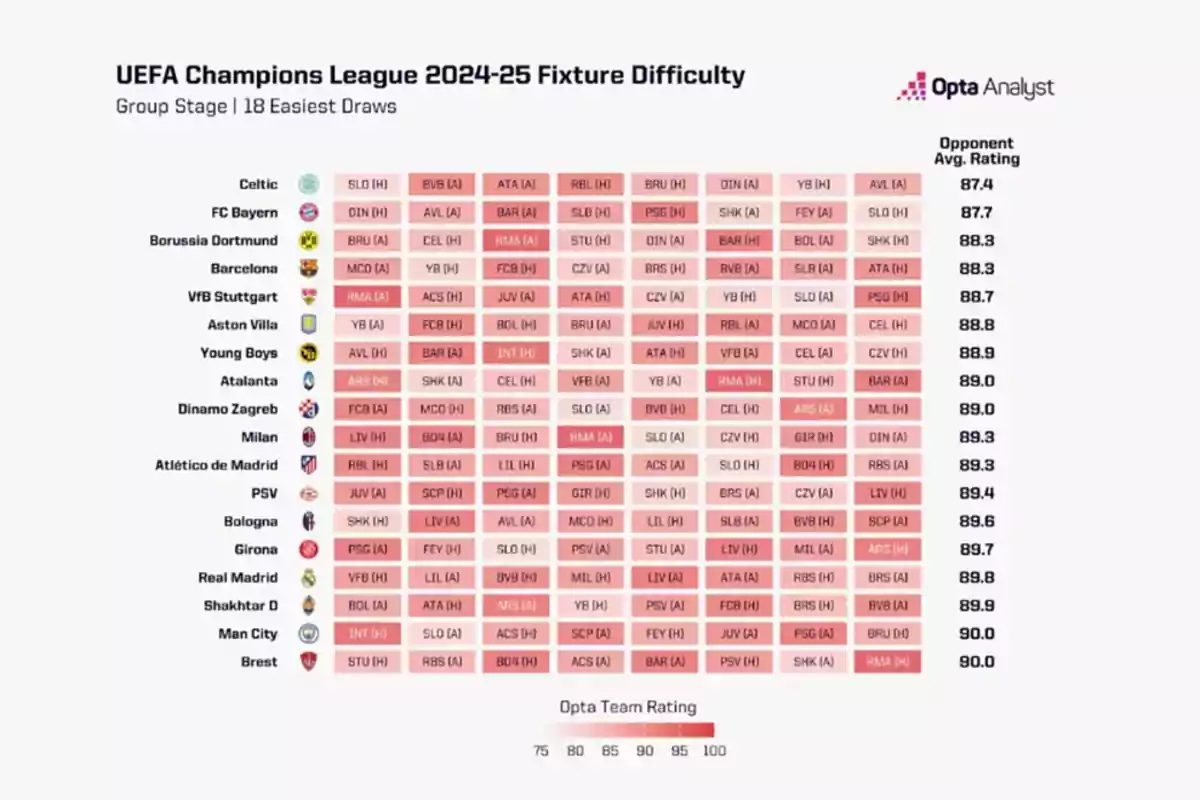The new Champions League will kick off next week with its innovative format. The four-team groups will be eliminated in favor of one giant group where there will be eight matches against different rivals. All this without home and away games coinciding.
A format that UEFA promoted due to pressure from Florentino Pérez's Super League and seeking to earn more money from a competition that already had an attractive format. We will see how this structural modification of the most prestigious club tournament in the world turns out.
Meanwhile, predictions are already beginning to be made by the supercomputers that have become so famous in recent years, the most famous of which is Opta. Based on algorithms and statistics, this computer acts as a fortune teller to discover who is most likely to be the winner.
Atlético de Madrid, not even in the quarterfinals
The predictions of this supercomputer are not usually very optimistic about Atlético de Madrid and they put the colchoneros as 13th in the table to win the Champions League. In percentage terms, this translates into a 2.2% chance, but if we look at the possibility of reaching the quarter-finals it translates to 30.5%.
However, for the round of 16 , the supercomputer does have faith in this renewed Atlético de Madrid and gives them a 64.3% chance . Now it is up to Simeone to break all the statistics to fight for a title that the red-and-white club has resisted. This thing about fighting against the statistics is not new either, since with all the titles they have won they have had to do the same, they never started out as favourites.

Manchester City champion
For a change, Guardiola's team is in the running for the title of champion, according to this supercomputer.Second place would be Ancelotti's Real Madrid , while Hansi Flick's revamped Barcelona would finish sixth in the standings.
The surprise of the Spanish teams is Girona, who have a 1.1% chance of winning the Champions League. All this, despite being their first time in the competition and having played five in the First Division. To put it into perspective, Atlético de Madrid only have twice as many chances of winning it as Girona, having qualified for the eleventh consecutive time and having reached two finals.

PSG, the most difficult path
Opta's supercomputer has also analysed the difficulty of the matches and the Parisian club takes the cake with 92.4%. The first of the Spanish teams to appear is Real Madrid with 89.8% difficulty, closely followed by Girona with 89.7%. The third Spanish team in the ranking is Atlético de Madrid with 89.3% and finally FC Barcelona with 88.3%.
Interestingly, Celtic Glasgow is the team that, according to this supercomputer, has the easiest path in the entire Champions League with 87.4%. But above them are the two most powerful German teams: Bayern Munich and Borussia Dortmund with 87.7% and 88.3% respectively.


